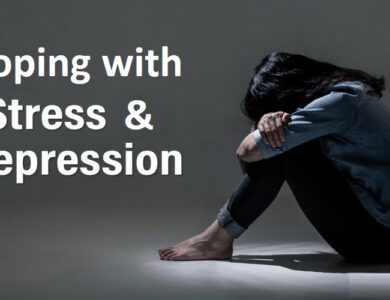Types of Therapy for Mental and Emotional Problems 2025

This article walks you through the most common types of therapy for mental and emotional problems. You will learn how each approach works, what makes them different, and how to choose one that fits your needs. The goal is to make things clear, practical, and easy to understand, whether you are seeking help for yourself or supporting someone else.
Disclaimer
This article is for informational purposes only. It is not a substitute for professional diagnosis or treatment. If you or someone you know is struggling with mental health issues, speak with a qualified mental health professional.
What Is Therapy and Why Does It Matter
Therapy is a guided conversation with a trained professional who helps you explore your thoughts, feelings, and behaviors. Think of it as having a personal coach for your mind and emotions. You talk, reflect, and discover healthier ways to cope with stress, anxiety, trauma, and other challenges.
People seek therapy for many reasons. Some want help managing daily stress, while others deal with long-lasting emotional wounds. Many simply want to understand themselves better. Whatever the reason, therapy offers a safe space to talk about things you may not share with friends or family.
Therapy is not a quick fix, and it is not a sign of weakness. It is more like learning how to swim. You may be nervous at first, but once you understand the basics and get comfortable, you will feel stronger and more confident in navigating your emotional waves.
Psychotherapy
Psychotherapy, also known as talk therapy or psychological counseling, involves meeting and talking with a trained therapist. It’s one of the most common forms of therapy for mental and emotional issues. The basic premise is that speaking with an objective professional can help provide insight, strategies, and support to address problematic thoughts, feelings, and behaviors.
There are many different types of psychotherapy, with some of the most popular including:
Cognitive Behavioral Therapy (CBT)
CBT is a short-term, goal-focused therapy that aims to change negative thought and behavior patterns. It’s premised on the idea that distorted, overly negative thinking often influences mood and actions. CBT helps patients recognize irrational or exaggerated thoughts, understand their thought patterns, and develop healthier ways of thinking that lead to more positive emotions and behaviors.
Acceptance and Commitment Therapy (ACT)
ACT focuses on accepting emotional struggles as a normal part of life while also committing to making positive changes. Therapists help patients clarify their personal values and then take action to live by those values. The goal is to create a rich, meaningful life even when stressful circumstances can’t be avoided. Patients learn not to overreact to or avoid troublesome thoughts, feelings, and situations.
Interpersonal Therapy (IPT)
IPT examines interpersonal relationships as a contributing factor to mental health issues. Therapists pinpoint and explore problematic areas such as grief, role disputes, role transitions, and interpersonal deficits. By improving communication and interpersonal skills, patients can experience reduced symptoms. IPT is commonly used to treat depression.
Psychodynamic Therapy
Psychodynamic therapy, sometimes called insight-oriented therapy, focuses on how unconscious drives, emotions, and motivations from the past affect current thoughts, feelings, and interactions. Therapists help patients develop insight into the origins of their difficulties so they can recognize patterns and take control. Free association and dream analysis are sometimes used to uncover unconscious aspects.
Group Therapy
Group therapy brings together several people facing similar mental health struggles under the guidance of a professional therapist. Members provide each other with moral support, a sense they’re not alone, and feedback. The therapist leads discussions, provides guidance on coping strategies, and facilitates interactions between group members.
Online Therapy & Text Therapy
For those who can’t easily meet with a therapist in person, online video sessions and text-based therapy offer convenient alternatives. These virtual options provide the benefits of professional support without geographic restrictions or scheduling challenges. While lacking the in-person connection, online therapy works similarly by having scheduled appointments with a therapist via phone, text, video chat, or messaging through a secure app.
Medication
In some cases, medication may be used in addition to therapy to help manage mental health symptoms. Only psychiatrists and other medical doctors can prescribe psychiatric medications. Some of the medications commonly used to treat mental health conditions include:
Antidepressants: Used to treat depression and anxiety disorders. Some common types are SSRIs, SNRIs, and MAOIs. These medications increase levels of certain neurotransmitters like serotonin to improve mood regulation.
Anti-anxiety Medications: Used to treat various anxiety disorders. Some common types are benzodiazepines like Xanax, Klonopin, and Valium. These drugs enhance the effect of the neurotransmitter GABA to promote calmness.
Mood Stabilizers: Help manage intense mood swings associated with bipolar disorder and other conditions. Lithium and anticonvulsant medications like Depakote, Tegretol, and Lamictal serve as mood stabilizers.
Antipsychotics: Treat symptoms like hallucinations, delusions, paranoia, and disordered thinking linked to schizophrenia, severe bipolar disor, and other conditions. Both older typical antipsychotics and newer atypical antipsychotics are used.
It’s important to weigh the risks and benefits when considering psychiatric medications, as all carry some side effects. Most people use medications alongside therapy for optimal results.
Other Therapies
In addition to talk therapy and medication, various other therapeutic techniques can also help address mental and emotional health issues:
Art Therapy & Music Therapy: Expressive creative arts therapies allow patients to explore emotions through music, painting, dance/movement, poetry, photography, and more. Creating art in a safe space aids stress relief and self-discovery.
Animal & Pet Therapy: Interacting with friendly animals has mental health benefits. Stroking soft fur triggers the production of feel-good hormones, while taking care of pets builds a sense of meaning and purpose. Some therapy programs incorporate specially trained animals.
Light Therapy: Exposure to artificial light that mimics natural light can boost mood and improve sleep for those with seasonal affective disorder (SAD) and certain other conditions. Light boxes and light visors deliver bright light.
EMDR: Eye movement desensitization and reprocessing (EMDR) helps process traumatic memories that contribute to conditions like PTSD. Bilateral stimulation, such as eye movements or ta, ps during recall of traumatic ev, can help de-escalate emotional distress.
Equine Therapy: Also known as horse therapy, these sessions involve interacting with horses to promote emotional growth and develop skills like managing behaviors, setting go, and building confidence. Equine therapy provides unique benefits from the human-horse connection.
Float Therapy: During float therapy, patients relax in a soundproof, light-free tank filled with shallow, skin-temperature saltwater. The effortless floating experience triggers profound relaxation, reduces sensations of pain, and heightens mindfulness.
The wide range of talk therapies, medications, and other treatment techniques means finding the right approach is essential. Mental health professionals can help diagnose specific conditions and make expert recommendations to ensure appropriate, effective therapy tailored to the individual’s needs.
How to Choose the Best Type of Therapy
With so many forms of treatment available, selecting the optimal therapeutic approach for your situation may feel overwhelming. Here are some tips to guide your decision:
Identify Priorities
Make a list of your top goals and what you hope to get out of therapy. This will help narrow suitable options. Be as specific as possible. For example, state things like “reduce anxiety attacks,” “process trauma,” “improve marriage communication,” etc.
Match Methods to Diagnosis
Certain therapies are better suited to particular mental health diagnoses. For instance, CBT aligns well with anxiety ddisorderswhile psychodynamic approaches often work best for addiction treatment. Discuss recommended evidence-based protocols with your doctor or therapist.
Consider Access and Affordability
Financial situation, insurance coverage, schedule flexibility, and convenience factors also play a role. For example, online counseling provides easy access but with limitations of virtual sessions. Identify any logistical barriers upfront.
Research Different Therapists
Reading therapy profiles helps get a feel for individual styles and areas of focus. A family therapist may excel at helping with marital issues, while a PTSD specialist has more experience with trauma. Meet with one or two therapists to experience their approach before committing.
Trust Your Instinct
The therapist-client relationship is vital, so it’s essential you feel comfortable opening up to your chosen professional. Make sure you connect well and sense genuine compassion and interest in helping you heal. Trust your gut instinct.
By getting clear on what you hope to achieve, understanding your diagnosis, considering practical factors, researching therapist options, and choosing someone you trust, you’ll be well on your way to finding the optimal therapy solution.
Frequently Asked Questions About Types of Therapy
Still have questions about the different forms of treatment for mental and emotional health conditions? Here are answers to some common queries:
Q. How do I know what type of therapy is right for me?
Matching the therapeutic approach to your specific issues and diagnosis tends to provide the greatest benefit. A mental health professional can best evaluate your symptoms and needs through a clinical assessment and recommend appropriate evidence-based protocols suited for you.
Q. How long does therapy take to work?
It varies a great deal depending on the individual and the type of therapy. Less complex conditions may show improvement within 5-10 sessions. But long-standing or childhood-rooted issues often require longer-term treatment of a year or more. Typically, you’ll experience gradual progress rather than overnight change.
Q. Does therapy really work?
Yes, a large body of clinical research provides clear evidence that therapy delivered by a licensed mental health professional produces meaningful improvements for a wide range of mental and emotional health problems. Therapy empowers people to make positive changes.
Q. How much does therapy cost?
Therapy costs depend on many factors, like session length, therapist credentials, insurance coverage, and type of practice. Average national rates run $60-$120 per session for individual psychotherapy, with psychiatric help at the higher end. Many therapists work on a sliding scale, too.
Q. What’s the difference between a therapist and a psychologist?
Psychologists have a doctoral degree (PhD / PsyD) with advanced training in administering clinical assessments and tests. A therapist is a general term for any licensed counselor, like clinical social workers, mental health counselors, and marriage & family therapists. All provide therapy.
The right help makes a huge difference in successfully addressing mental health struggles. Whether talk therapy, medication, or other treatments, rest assured, various effective options exist across a range of budgets. Identify your needs, research therapist backgrounds, and choose an approach that aligns with your personal recovery goals.
Conclusion
Coping with mental or emotional health issues can feel isolating and overwhelming. Yet diverse treatment options exist that can help you reclaim your sense of well-being. Psychotherapy, medication, and complementary techniques all provide targeted relief aided by caring professionals devoted to supporting your healing journey. Identify therapies suiting your diagnosis, priorities, and resources, select a compatible therapist, and commit to the process for positive change. There is hope, and the many paths to mental and emotional wellness start with reaching out for help.

